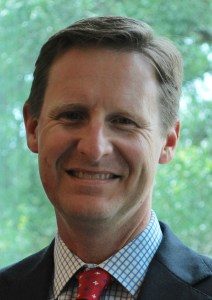Georgia Brownfield Program Encourages Redevelopment of Environmentally Contaminated Properties
By John Northup, Bouhan Falligant LLP
Special to Business in Savannah
Sometimes you’ve got to take the good with the bad.
Say, for instance, you have an opportunity to buy a commercial property at the corner of a busy intersection. It’s an excellent location for your new venture, but the property happens to be an old gas station, with known environmental contamination in the soil and groundwater below the property. Despite the prime location, the risk of becoming legally responsible for the contamination, as the property’s new owner, might make you think twice before buying. Not to mention that the cost to clean up the environmental contamination might significantly add to the overall cost to develop the property.
But what if I told you that Georgia has a program that not only will compensate you for your cleanup expenses, but will also protect you from future legal liability? Now that property is looking a lot more attractive, right?
This was the rationale behind the Georgia Brownfield Program, which was created in 2003 by the Georgia Environmental Protection Division (EPD) to encourage the voluntary clean up and redevelopment of environmentally contaminated properties. To be eligible for the program, a property must be contaminated by any of several hazardous chemicals. On the small end, eligible properties are often former gas stations or dry cleaners; larger eligible properties are often former industrial sites.
Importantly, the program is open only to prospective purchasers – with a few exceptions, the current owner of an otherwise eligible property cannot apply. A brownfield program applicant also cannot have contributed to any release of hazardous substances on the property, or be affiliated with any party responsible for such a release – including the current owner of the property.
In most cases, the Brownfield process starts by submitting to the EPD a Prospective Purchaser Corrective Action Plan (PPCAP), which outlines the extent and source of the contamination, and provides a plan for the environmental cleanup of the property. The standard for the cleanup will depend on the applicant’s proposed use for the redeveloped property. Once the EPD approves the PPCAP, it will issue a limitation of liability that protects the property owner from any future litigation based on past releases of hazardous substances. This valuable limitation of liability is transferable to subsequent owners of the property.
The Brownfield program also allows a commercial buyer to recoup certain environmental cleanup costs through tax incentives available under Georgia law. These cleanup costs – which must be directly related to the remediation of the property – must be certified by the EPD after the cleanup is complete. The tax incentive allows a Brownfield program participant to freeze the property’s tax basis, so that the owner pays property taxes based on the frozen value rather than on the higher value the property will be worth once developed. The basis can be frozen for up to 10 years, or until all certified cleanup costs are recouped.
For instance, if a Brownfield developer buys a $4 million property and spends $500,000 on certified clean-up costs, the value of the newly-redeveloped property may be $10 million. Ordinarily, the developer would pay property taxes based on the new $10 million value; however, under the Brownfield tax incentive, the developer would pay taxes based only on the original $4 million purchase price for up to 10 years, until his tax savings total $500,000.
Of course, not every Brownfield site is right for every buyer. Buyers should conduct a cost-benefit analysis before purchasing a Brownfield property to make sure that the expected increase in property value from redevelopment would offset the environmental cleanup costs. If that is the case, the Georgia Brownfield program can be a useful tool to commercial buyers looking for redevelopment property.
Prospective buyers interested in a property that may qualify for this program should consult with a commercial real estate attorney with experience in this area.
Attorney John Northup’s practice at Bouhan Falligant focuses on commercial real estate, banking, corporate law and litigation. Northup earned a B.A. from the University of Virginia, and a J.D./M.B.A. from the University of Georgia. He represents real estate developers and lenders in all aspects of their practice, including acquisition and development, zoning and land use, economic development, and commercial litigation.

